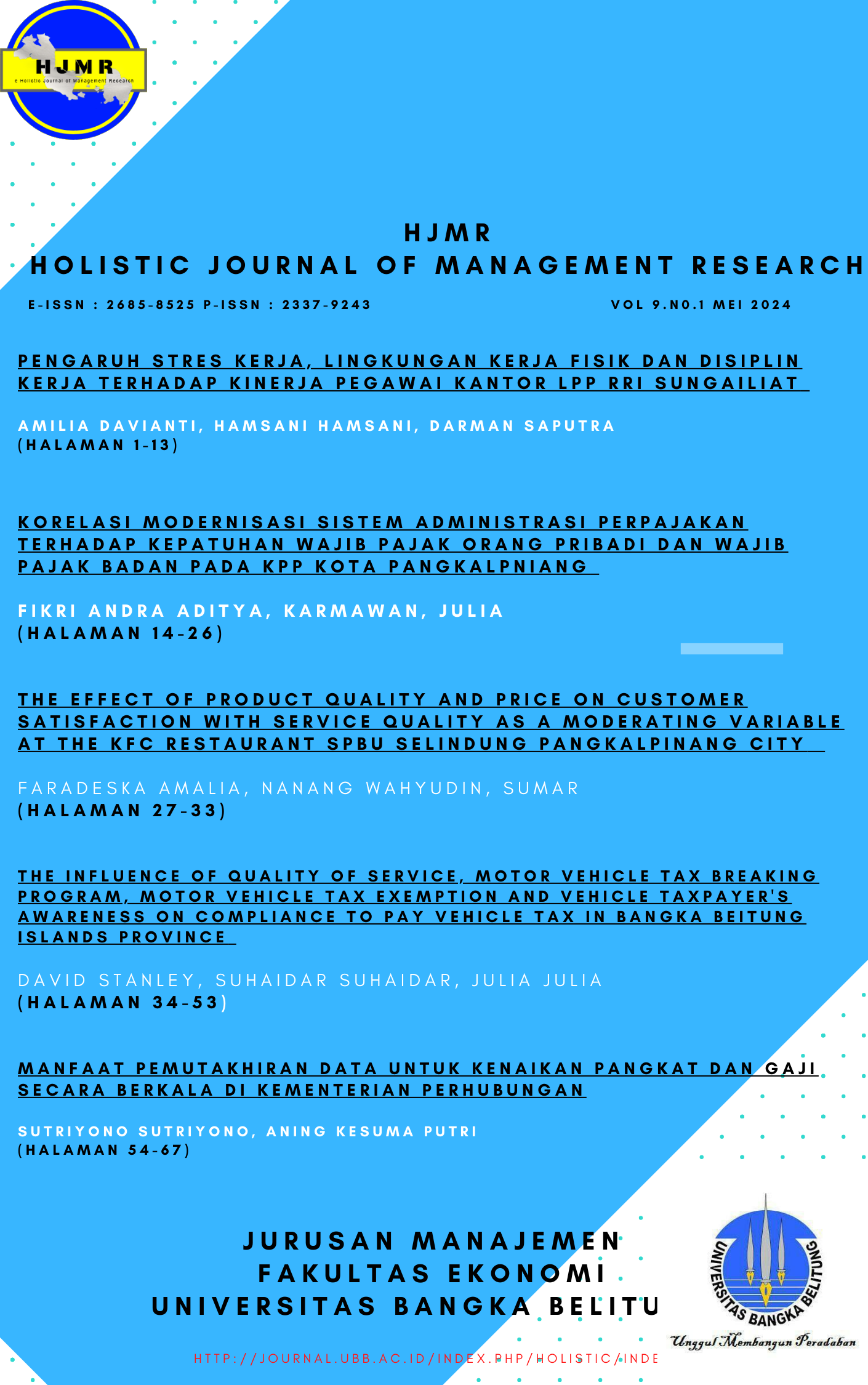Korelasi Modernisasi Sistem Administrasi Perpajakan Terhadap Kepatuhan Wajib Pajak Orang Pribadi dan Wajib Pajak Badan Pada KPP Kota Pangkalpniang
Tax Administration System for Taxpayer Compliance
DOI:
https://doi.org/10.33019/hjmr.v9i1.4321Keywords:
modernization, tax administration system, behavior, taxpayers' compliance, tax obligations.Abstract
ABSTRACT
This Research investigates the correlation between the modernization of the tax administration system and the compliance behavior of individual and corporate taxpayers at the Pratama Tax Service Office in Pangkalpinang City. The objective is to analyze whether the implementation of modernization measures has a significant impact on taxpayers' compliance in meeting their tax obligations.Quantitative research methodology is employed, utilizing data collected through structured questionnaires distributed to a representative sample of individual and corporate taxpayers in Pangkalpinang City. The study encompasses both primary and secondary data to ensure a comprehensive analysis.The primary data is gathered from the questionnaires, focusing on aspects such as taxpayers' awareness of the modernization initiatives, their perception of the efficiency of the new system, and the level of ease in fulfilling their tax responsibilities. Statistical analysis, including correlation tests and regression analysis, will be conducted to determine the degree of correlation between modernization efforts and taxpayer compliance. The expected outcomes of this research will shed light on the effectiveness of modernization initiatives in fostering compliance among individual and corporate taxpayers in Pangkalpinang City. The findings will be valuable for tax administrators, policymakers, and researchers in devising evidence-based strategies to enhance taxpayer compliance and overall revenue collection. In conclusion, this research aims to contribute to the growing body of knowledge on tax administration modernization and its implications on taxpayer compliance. The research findings are expected to provide practical recommendations for tax authorities to streamline the tax system, encourage voluntary compliance, and promote a more efficient revenue collection process in the region.














